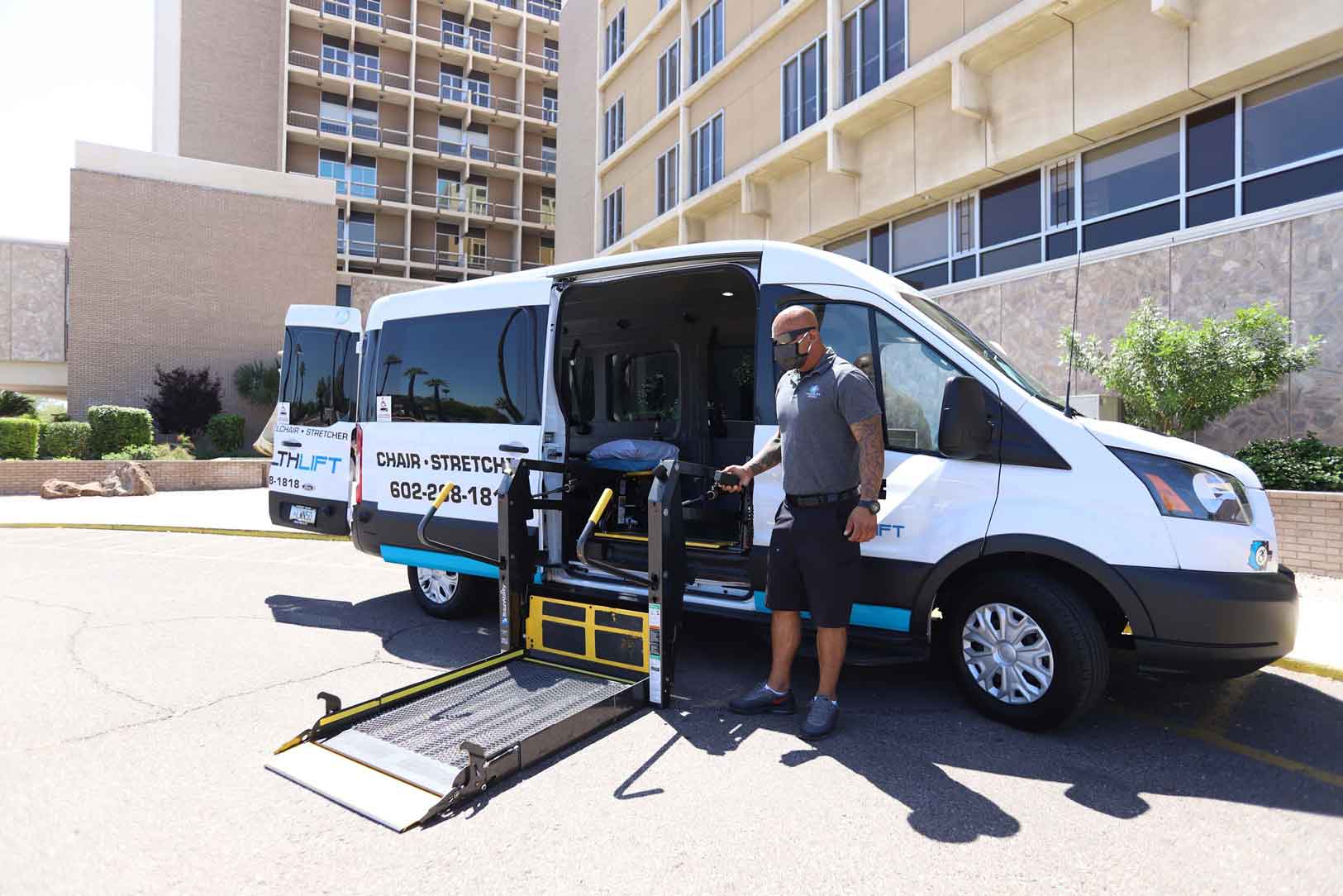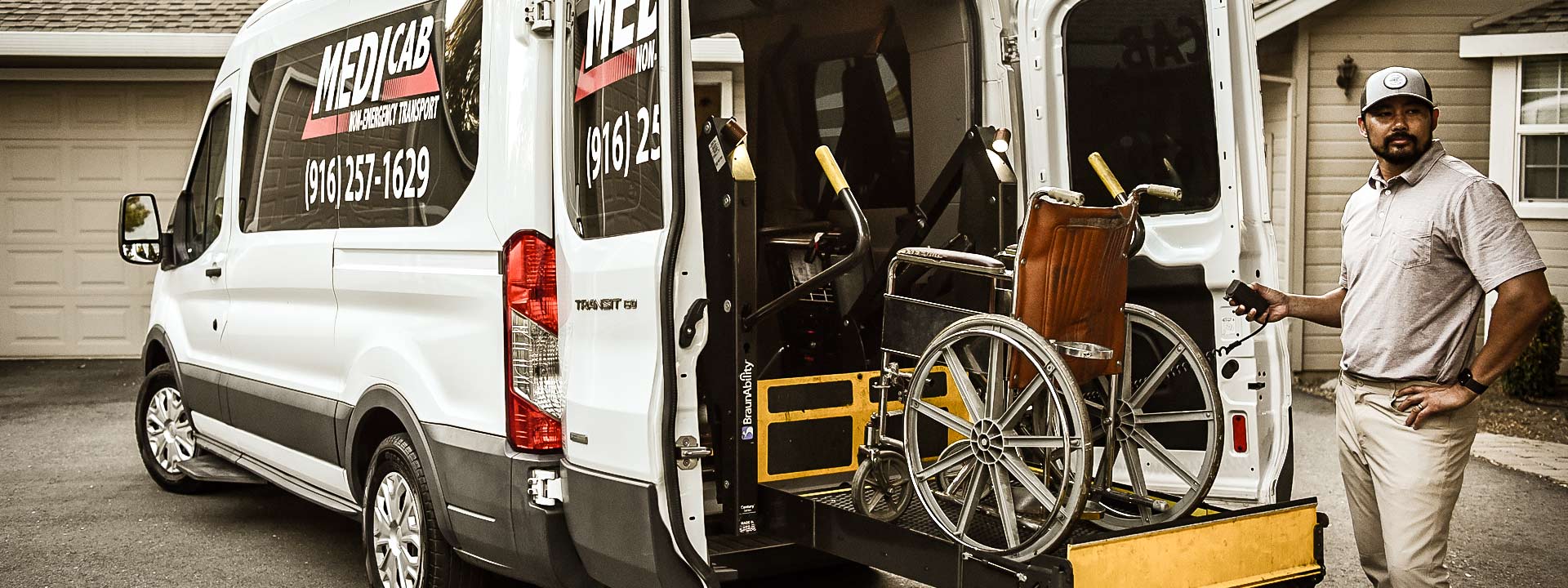Comfortably Reach Health Care with Medical Transportation Services Near Me
Comfortably Reach Health Care with Medical Transportation Services Near Me
Blog Article
Available and Affordable Medical Transportation Options for Seamless Wellness Assistance
In the realm of medical care, the access and cost of clinical transportation are extremely important in guaranteeing people can access the care they require when they require it. The capability to effortlessly browse transport choices can dramatically influence an individual's capacity to obtain timely medical focus, follow-up care, and total health. From non-emergency clinical transportation solutions to cutting-edge remedies like telehealth, the landscape of clinical transport is evolving to fulfill the varied demands of people. Thinking about the value of this element in health care distribution, checking out the range of options offered becomes important for resolving voids in availability and affordability.
Non-Emergency Medical Transport Services

These services are staffed by qualified professionals that focus on person comfort and security during transportation. Motorists are furnished to manage individuals with varying medical demands and guarantee that all trips are worry-free and smooth - Medical Transportation Services Near Me. Furthermore, non-emergency clinical transport services usually make use of specialized vehicles that are wheelchair-accessible, making them suitable for a wide variety of clients with various mobility needs
Volunteer Chauffeur Programs
Volunteer motorist programs are instrumental in offering transportation help for people seeking non-urgent healthcare. These programs count on the generosity of volunteers who donate their time and lorries to help transport individuals to and from medical visits. By making use of volunteer drivers, companies can provide a cost-effective option for people who may not have accessibility to trustworthy transport.
Among the crucial benefits of volunteer chauffeur programs is the individualized care and attention that people receive. Unlike typical transportation services, volunteer drivers usually establish a rapport with the people they assist, creating a caring and supportive environment throughout what can be a stressful time. Furthermore, volunteer motorist programs can help link the gap for individuals living in rural or underserved locations where public transport options might be limited.
Public Transport Options

One of the crucial advantages of public transportation is its extensive availability in metropolitan and rural locations alike. This considerable network permits clients from diverse histories to take a trip to medical visits with family member convenience. Additionally, public transport systems are frequently find more outfitted to fit people with impairments, supplying available traveling choices for those with wheelchair obstacles.

Ride-Sharing and Transportation Network Companies
The development of contemporary transport alternatives for clinical objectives extends beyond conventional public systems like buses and trains to incorporate the innovative realm of ride-sharing and transport network business. Ride-sharing solutions such as Uber and Lyft have revolutionized the means people travel to medical visits, providing ease and versatility to clients who might not have accessibility to their cars or conventional mass transit. These systems permit customers to ask for an adventure with the touch of a switch on their smart devices, supplying door-to-door service that can be specifically valuable for people with movement difficulties or those requiring assistance.
Transportation network companies (TNCs) have also played a significant function in bridging the space in medical transport services. Companies like Veyo and RoundTrip concentrate on non-emergency medical transport, dealing with individuals who require a higher degree helpful during their journeys to clinical facilities. By partnering with doctor and insurance companies, TNCs ensure that patients can access timely and reputable transportation services, ultimately contributing to boosted health outcomes and client satisfaction.
Telehealth and Online Consultations
Enhancing health care access and comfort, telehealth and digital consultations have arised as critical elements in contemporary medical techniques, transforming the means clients engage with medical care service providers. Telehealth leverages technology to promote remote communication between people and medical care specialists, providing a vast array of services such as virtual consultations, remote surveillance, and electronic prescriptions. Virtual assessments make it possible for individuals to look for medical recommendations, medical diagnosis, and therapy from the comfort of their homes, eliminating the need for physical brows through to medical care centers. This method not just saves time and lowers transport prices for individuals yet likewise boosts the general performance of health care shipment.
Additionally, telehealth plays a crucial role in prolonging clinical solutions to underserved communities, country areas, and people with minimal movement. By breaking down geographical barriers and enhancing healthcare outreach, telehealth advertises very early intervention, continuity of care, and patient interaction. As innovation remains to development, telehealth is positioned to play a progressively considerable role in shaping the future of medical care distribution, cultivating enhanced wellness outcomes and patient fulfillment.
Verdict

From non-emergency clinical transportation solutions to innovative options like telehealth, the landscape of clinical transport is advancing to satisfy the varied needs of people.Non-Emergency Medical Transportation Services help with the timely and secure transport of people requiring non-urgent medical treatment to and from healthcare facilities.The advancement of contemporary transport options for medical objectives extends beyond typical public systems like buses and trains to incorporate the innovative world of ride-sharing and transport network companies.Transport network firms (TNCs) have likewise played a substantial role in connecting the void in medical transportation services. Non-Emergency Medical Transport Providers, Volunteer Driver Programs, Public Transport Options, Ride-Sharing and Transport Network Firms, official statement and Telehealth and Virtual Consultations all play an important duty in addressing transportation barriers to health care accessibility.
Report this page